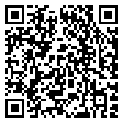110
不仅限于学术辩论,还塑造了关于 LIO 种族平等制度化的政治和规范斗争。采用以对象为的方法,本文认为种族的认识论模糊性产生了政治影响,既允许在 LIO 中重现殖民逻辑,也为抵抗策略提供了空间。笔者未采用线性因果关系,而是从经验层面上来描绘认知模糊性在本世纪中叶国际秩序的建立中所发挥的作用。
【 原 文 】 There is increasing interest in how anticolonial actors advanced a norm of racial equalityinmid-century formations of liberal international order (LIO). Less attention, however, is affordedtosimultaneous epistemic conflicts over the scientific object of ‘race’ and their political effects. Duringpostwar order-building and alongside political struggles for racial equality, there was wide anddeepscientific debate on the analytical utility of race as a means to categorize human diversity. Race, I
demonstrate, was rendered as epistemically ambiguous, caught between social scientists and philosopherswho understood it as a social construct akin to ethnicity and natural scientists who maintained a biological
basis. This split was not confined to academic debate but shaped political and normative struggles over theinstitutionalization of racial equality in LIO. Adopting an object-oriented approach, I argue that theepistemic ambiguity of race generated political effects, at once permitting the reproduction of colonial logicsin LIO as well as providing latitude for strategies of resistance. Rather than a linear causal effect, I
empirically map the work that epistemic ambiguity performed in the creation of mid-century international
order. 5. 技术标准的地缘政治:美国、欧盟和中国做法的历史背景(The geopolitics of
technology standards: historical context for US, EU and Chinese approaches)Nicholas Zúñiga
【摘要】人们越来越关注反殖民主义行为者如何在本世纪中叶的自由国际秩序(LIO) 形成过程中推进种族平等规范。然而,人们较少关注同时发生的关于“种族”科学对象的认识论冲突及其政治影响。在战后秩序建设期间以及种族平等的政治斗争中,科学界对种族作为人类多样性分类手段的分析效用进行了广泛而深入的辩论。我认为,种族在认识论上是模棱两可的,夹在社会科学家和哲学家(他们将种族理解为类似于种族的社会结构)与自然科学家(他们认为种族是生物学基础)之间。这种分裂不仅限于学术辩论,还塑造了关于 LIO 种族平等制度化的政治和规范斗争。采用以对象为的方法,本文认为种族的认识论模糊性产生了政治影响,既允许在 LIO 中重现殖民逻辑,也为抵抗策略提供了空间。笔者未采用线性因果关系,而是从经验层面上来描绘认知模糊性在本世纪中叶国际秩序的建立中所发挥的作用。
【原 文】This article provides a review of the historical trends that are shaping global competitionfor
standard setting in emerging technologies. Specifically, it explores how the traditional rule-makers of
international standardization, namely the United States and Europe, are responding to the rise of Chinainstandard-setting. The article argues that three polities are adapting their standard-setting strategies to shiftingpower dynamics in the international technology order. To preserve its competitive advantage, the USisbecoming more interventionist and proactive in setting technology standards. China has developedalong-term standardization strategy to bolster its domestic industrial development, increase its influenceand



